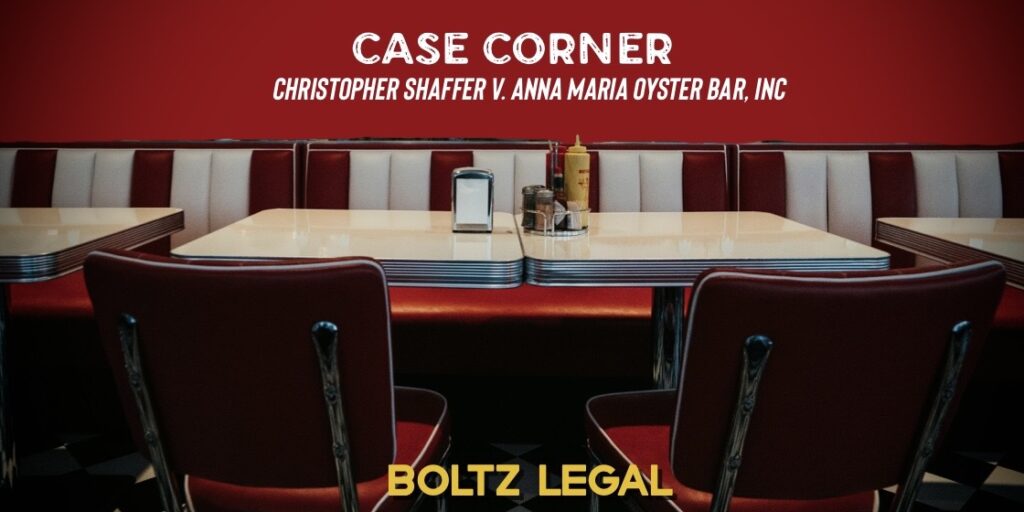In Christopher Shaffer v. Anna Maria Oyster Bar, Inc., the plaintiff, Christopher Shaffer, filed a premises liability claim against the defendant, Anna Maria Oyster Bar, Inc., alleging that he slipped and fell on a transitory foreign substance within the restaurant. However, the court granted summary judgment in favor of the defendant, citing a lack of evidence.
Key points in the ruling include:
- Lack of Evidence of Substance: The plaintiff admitted during his deposition that he did not know what caused him to fall, and he did not see any substance on the floor before or after the incident. There was also no indication that his clothes were wet after the fall, further weakening the claim that there was a liquid or similar substance on the floor.
- Constructive Knowledge: The court found that there was no evidence to suggest that the restaurant had actual or constructive knowledge of any dangerous condition. The plaintiff’s theory that an employee at the hostess station should have observed any spill was deemed speculative, as there was no proof that a substance was present, nor that it had been on the floor long enough for the restaurant to be expected to notice it.
- Speculative Claims: The court highlighted that the plaintiff’s theory of liability was based on speculation rather than concrete evidence, which is insufficient under the revised summary judgment standards.
As a result, the court determined that there was no genuine dispute of material fact and granted summary judgment for the defendant, Anna Maria Oyster Bar, Inc.
Today’s Insight:
“Success is not final, failure is not fatal: It is the courage to continue that counts.”

